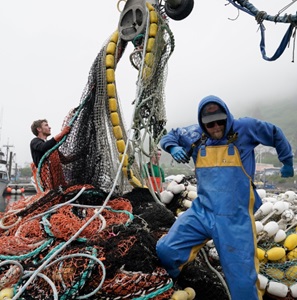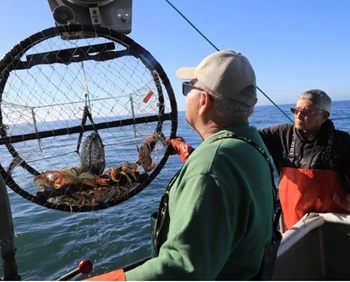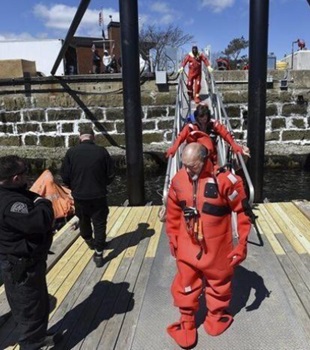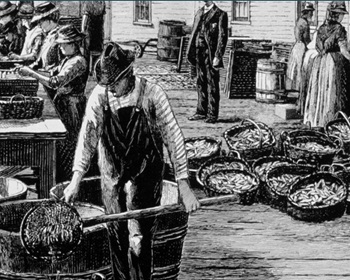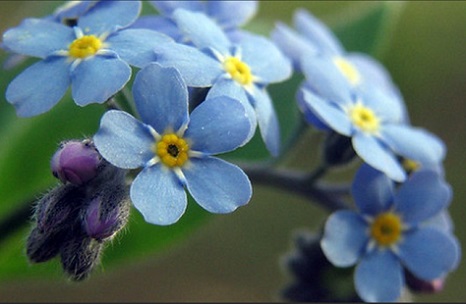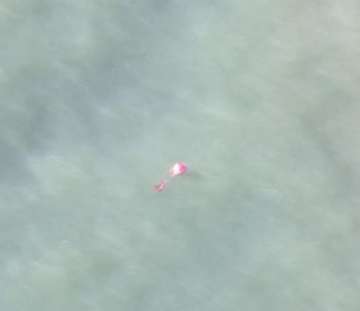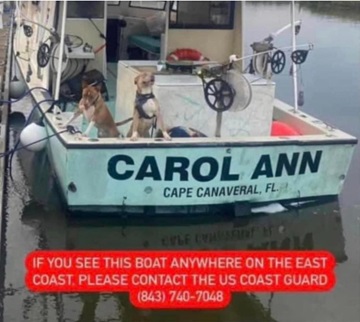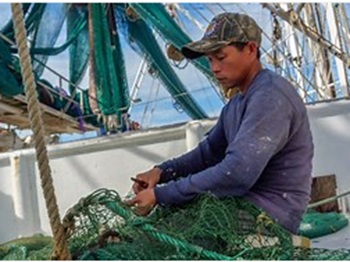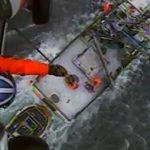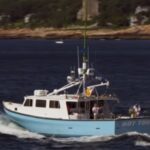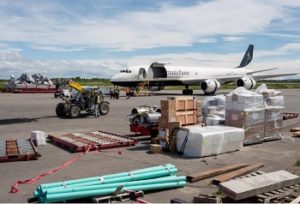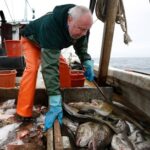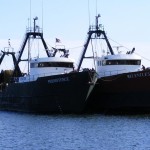Category Archives: South Atlantic
American Shrimp Processors Association Welcomes House China Select Committee’s Bipartisan Trade Enforcement Recommendations
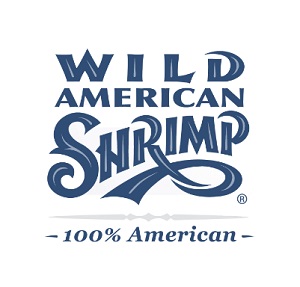 On December 12, 2023, the House Select Committee on the Chinese Communist Party adopted a bipartisan report with scores of policy recommendations to reset the terms of the U.S. economic relationship with China and help domestic producers compete in the face of China’s non-market practices. The American Shrimp Processors Association (ASPA) welcomed the recommendations focused on strengthening the enforcement of U.S. trade remedy laws as a key component of this strategy. “American shrimp processors and harvesters have been fighting China’s unfair trade practices for nearly twenty years,” said ASPA President Trey Pearson. “The domestic shrimp industry is made up of small, family-owned businesses, and we need our trade remedy laws to be strengthened and vigorously enforced for us to have a chance to compete with foreign producers and exporters supported by the Government of China.” more, >>click to read<< 09:46
On December 12, 2023, the House Select Committee on the Chinese Communist Party adopted a bipartisan report with scores of policy recommendations to reset the terms of the U.S. economic relationship with China and help domestic producers compete in the face of China’s non-market practices. The American Shrimp Processors Association (ASPA) welcomed the recommendations focused on strengthening the enforcement of U.S. trade remedy laws as a key component of this strategy. “American shrimp processors and harvesters have been fighting China’s unfair trade practices for nearly twenty years,” said ASPA President Trey Pearson. “The domestic shrimp industry is made up of small, family-owned businesses, and we need our trade remedy laws to be strengthened and vigorously enforced for us to have a chance to compete with foreign producers and exporters supported by the Government of China.” more, >>click to read<< 09:46
Where will the whales be? Ask the climate model
In a new study, scientists say they can now use global temperature models, commonly used in climate science, to predict up to a year in advance when hot ocean temperatures will raise the risk of whale entanglements. This lead time could allow state regulators, fishers and other businesses that depend on the fishery, as well as Californians hoping for a Dungeness crab holiday meal, to plan ahead for potential fishing restrictions. Ecological forecasts could help New England and maritime Canada, where highly endangered right whales are also getting entangled in fishing gear. “My personal opinion is that this is very, very helpful,” said Richard Ogg, a commercial fishing boat captain based in Bodega Bay. more, >>click to read<< 11:57
Hyde-Smith, Cotton & Scott Introduce Bill to Ban Chinese Seafood Imports
 WASHINGTON, D.C. – U.S. Senator Cindy Hyde-Smith (R-Miss.) today joined U.S. Senators Tom Cotton (R-Ark.) and Rick Scott (R-Fla.) in introducing legislation to ban U.S. imports of seafood and aquaculture products from China. The Ban China’s Forbidden Operations in the Oceanic Domain (Ban C-FOOD) Act would also sanction companies that import Chinese seafood and place tariffs on countries that facilitate the shipment of the seafood. “It’s past time we hold China accountable for its persistent violation of sovereign waters and its shameless use of slave labor to dominate the aquaculture market with unsafe, chemical-ridden products. more, >>click to read<< 09:01
WASHINGTON, D.C. – U.S. Senator Cindy Hyde-Smith (R-Miss.) today joined U.S. Senators Tom Cotton (R-Ark.) and Rick Scott (R-Fla.) in introducing legislation to ban U.S. imports of seafood and aquaculture products from China. The Ban China’s Forbidden Operations in the Oceanic Domain (Ban C-FOOD) Act would also sanction companies that import Chinese seafood and place tariffs on countries that facilitate the shipment of the seafood. “It’s past time we hold China accountable for its persistent violation of sovereign waters and its shameless use of slave labor to dominate the aquaculture market with unsafe, chemical-ridden products. more, >>click to read<< 09:01
A group of commercial fishermen have ended up before the Supreme Court
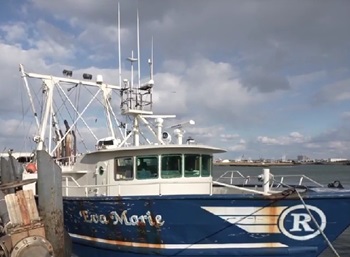 An unforgiving southeast wind cut across Cape May, New Jersey, on a recent Tuesday morning; the 50-mile-per-hour gusts were so strong they created white caps on a section of the bay here that is typically calm. There would be no fishing for Bill Bright and his crew. “We don’t have crop insurance. If the fish don’t show up, there’s no bailout,” the 64-year-old said, standing on the deck of the Eva Marie, an 88-foot-long fishing vessel used to catch herring. As a lifelong fisherman, Bright is used to slow days. But a recent shift in tidal fortunes here has nothing to do with fish and everything to do with the federal government. “What’s at stake for us is our future,” Bright said. For years, fishermen like Bill Bright and his colleague Wayne Reichle have been required to take federal observers on their boats when they set out into the North Atlantic in search of herring. Video , >>click to read<< 19:06
An unforgiving southeast wind cut across Cape May, New Jersey, on a recent Tuesday morning; the 50-mile-per-hour gusts were so strong they created white caps on a section of the bay here that is typically calm. There would be no fishing for Bill Bright and his crew. “We don’t have crop insurance. If the fish don’t show up, there’s no bailout,” the 64-year-old said, standing on the deck of the Eva Marie, an 88-foot-long fishing vessel used to catch herring. As a lifelong fisherman, Bright is used to slow days. But a recent shift in tidal fortunes here has nothing to do with fish and everything to do with the federal government. “What’s at stake for us is our future,” Bright said. For years, fishermen like Bill Bright and his colleague Wayne Reichle have been required to take federal observers on their boats when they set out into the North Atlantic in search of herring. Video , >>click to read<< 19:06
Will SAFMC open oculina coral reef to shrimp trawling? Environmentalists oppose plan
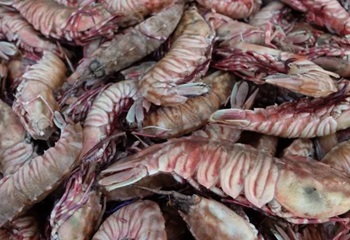 Will an area of ocean bottom offshore of Florida’s Atlantic coast soon be reopened to shrimp fishers? That’s what’s expected to be decided Thursday during a meeting of the South Atlantic Fishery Management Council’s Habitat Protection and Ecosystem Based Management Committee. They will vote on a motion to open a 22-square-mile area of sea floor about 20 miles offshore of St. Lucie, Indian River and Brevard counties. The area is believed to be an area where rock shrimp, and several other varieties of shrimp, can be harvested for sale in Florida seafood markets and restaurants. Commercial fishers say the area, closed to shrimp trawling since 2014, is ripe for productive fishing. Conservationists disagree, saying the area needs to remain closed to protect the slow-growing deepwater oculina coral from fishing practices that could harm the coral. more, >>click to read<< 14:25
Will an area of ocean bottom offshore of Florida’s Atlantic coast soon be reopened to shrimp fishers? That’s what’s expected to be decided Thursday during a meeting of the South Atlantic Fishery Management Council’s Habitat Protection and Ecosystem Based Management Committee. They will vote on a motion to open a 22-square-mile area of sea floor about 20 miles offshore of St. Lucie, Indian River and Brevard counties. The area is believed to be an area where rock shrimp, and several other varieties of shrimp, can be harvested for sale in Florida seafood markets and restaurants. Commercial fishers say the area, closed to shrimp trawling since 2014, is ripe for productive fishing. Conservationists disagree, saying the area needs to remain closed to protect the slow-growing deepwater oculina coral from fishing practices that could harm the coral. more, >>click to read<< 14:25
Athearn Marine Agency Boat of the Week: 92′ Rodriguez Scalloper/Shrimper
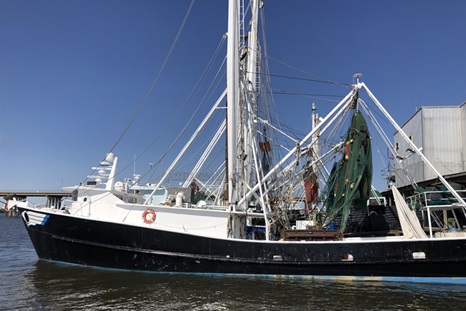 To review specifications, information, 35 photos’, and a video, >click here<, To see all the boats in this series, >click here< 10:50
To review specifications, information, 35 photos’, and a video, >click here<, To see all the boats in this series, >click here< 10:50
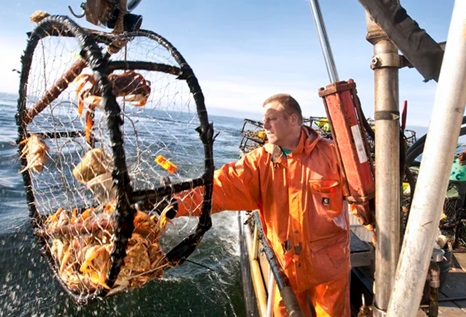
What makes Dungeness Crab Unique
Named after the town of Dungeness, Washington where people first began fishing for these crustaceans in the 1800s, Dungeness crab meat is prized by chefs and seafood connoisseurs alike for its subtle sweetness, and flaky, delicate texture. It’s easy to get lost in the moment when you’re biting into a chunk of delectable Dungeness crab meat. Still, it’s worth pausing to express gratitude toward the crab fishermen (and women) who caught that meal for you. This article covers a lot about these crabs, and you’ll know about a wide variety of crab from Dungeness to King Crab. Dungeness vs. Snow Crab, vs. Stone Crab, Photos, and more, >>click to read<< 16:50
‘Catalytic.’ How a bipartisan bill could save working waterfronts from Cape Cod to Alaska
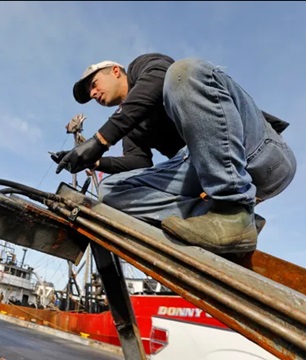
Andrew Spalt climbs the side of the new hydraulic dredge ramp he is installing aboard his boat Miss Emma.
The Working Waterfront Protection Act (S-3180) would establish a grant program that would support working waterfronts in coastal states, including the Great Lakes. The act would provide $20 million annually through fiscal 2028. Commercial fishing cooperatives, working waterfront owners and operators, nonprofit organizations and municipal and state governments would be eligible to apply. Fishing Communities Coalition Coordinator Noah Oppenheim said support is crucial because of pressures facing working waterfront owners and fishing communities nationwide. The coalition represents more than 1,000 independent small boat fishermen and business owners from Maine to Alaska, according to its website. 8 photos, more, >>click to read<< 09:38
Locals want more rules for seafood imports
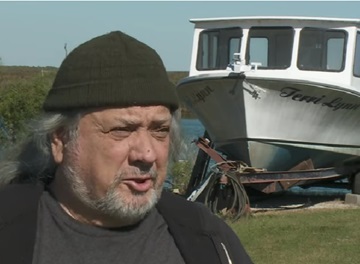 Only about 10% of seafood consumed in America is domestic. That’s crippling the Louisiana seafood industry. “For the last two years it’s just about ruined the industry,” Louisiana fisherman Pete Gerica said. In his 50 years on the water, Gerica has never seen it this bad. “There’s just so much you can take,” Gerica said. “Fuel prices being $4.00 a gallon. The cost of everything you buy, it’s just you can’t stay in business if you keep on spending money and you ain’t making none.” Monday, Congressman Garret Graves and Lt. Governor Billy Nungesser testified before the Louisiana Seafood Task Force in Baton Rouge. more, video, >>click to read<< 12:40
Only about 10% of seafood consumed in America is domestic. That’s crippling the Louisiana seafood industry. “For the last two years it’s just about ruined the industry,” Louisiana fisherman Pete Gerica said. In his 50 years on the water, Gerica has never seen it this bad. “There’s just so much you can take,” Gerica said. “Fuel prices being $4.00 a gallon. The cost of everything you buy, it’s just you can’t stay in business if you keep on spending money and you ain’t making none.” Monday, Congressman Garret Graves and Lt. Governor Billy Nungesser testified before the Louisiana Seafood Task Force in Baton Rouge. more, video, >>click to read<< 12:40
Environmentalists face off against environmentalists over offshore wind projects
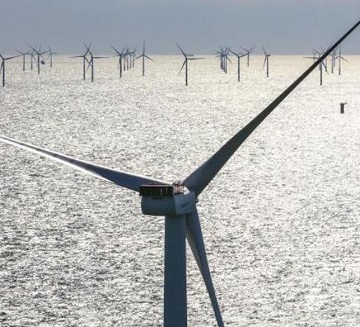 The Energy Department estimates offshore wind turbines could produce as much as 20% of regional power needs along the densely populated Eastern Seaboard from Florida to Maine by 2050. To reach that goal, the Biden administration had hoped to green-light 30 gigawatts from utility-scale offshore wind farms by 2030—enough to power nine million homes. That now seems wildly ambitious, as billions of dollars in projects have been canceled amid staggering cost overruns, soaring interest rates and supply-chain delays. Added to these economic woes are persistent environmental concerns, as attested to by some recent federal lawsuits. In September, for example, Cape May County, N.J., and a coalition of regional environmental, fisheries and tourism groups sought to stop development of two utility-scale projects off the New Jersey coast. more, >>click to read<< 11:54
The Energy Department estimates offshore wind turbines could produce as much as 20% of regional power needs along the densely populated Eastern Seaboard from Florida to Maine by 2050. To reach that goal, the Biden administration had hoped to green-light 30 gigawatts from utility-scale offshore wind farms by 2030—enough to power nine million homes. That now seems wildly ambitious, as billions of dollars in projects have been canceled amid staggering cost overruns, soaring interest rates and supply-chain delays. Added to these economic woes are persistent environmental concerns, as attested to by some recent federal lawsuits. In September, for example, Cape May County, N.J., and a coalition of regional environmental, fisheries and tourism groups sought to stop development of two utility-scale projects off the New Jersey coast. more, >>click to read<< 11:54
NTSB Releases Report of Sinking of Commercial Fishing Vessel off Georgia Coast
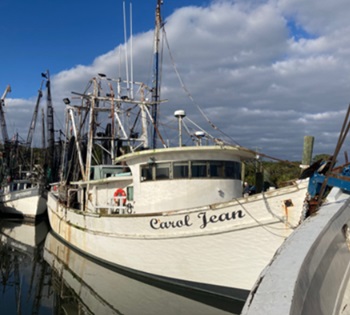 The National Transportation Safety Board issued Marine Investigation Report 23-24 Tuesday for its investigation of the sinking of the commercial fishing vessel Carol Jean off the coast of Georgia. On March 21, while anchored with no one on board, the Carol Jean flooded and sank in the Atlantic Ocean near Tybee Island, Georgia. After the vessel’s emergency position indicating radio beacon, or EPIRB, activated, the US Coast Guard responded and found a debris field where the beacon’s signal originated. There was no pollution reported. The loss of the Carol Jean was estimated at $250,000. The owner/captain of the Carol Jean purchased another commercial fishing vessel and planned to use the Carol Jean to tow the second vessel to Valona, Georgia. >>more, click to read<< 14:22
The National Transportation Safety Board issued Marine Investigation Report 23-24 Tuesday for its investigation of the sinking of the commercial fishing vessel Carol Jean off the coast of Georgia. On March 21, while anchored with no one on board, the Carol Jean flooded and sank in the Atlantic Ocean near Tybee Island, Georgia. After the vessel’s emergency position indicating radio beacon, or EPIRB, activated, the US Coast Guard responded and found a debris field where the beacon’s signal originated. There was no pollution reported. The loss of the Carol Jean was estimated at $250,000. The owner/captain of the Carol Jean purchased another commercial fishing vessel and planned to use the Carol Jean to tow the second vessel to Valona, Georgia. >>more, click to read<< 14:22
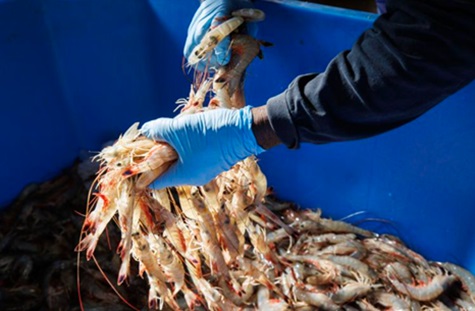
Editorial: South Carolina’s shrimpers are struggling; here’s 1 way to help
Those living in the Charleston area likely are well-familiar with the fact that our local shrimping industry has long been bruised by competition from imported shrimp, but the problem seems to have become more urgent than ever. Fortunately, there are steps we all can take to help out. As S.C. Shrimpers Association vice president Bryan Jones wrote in his recent letter to the editor, our state’s shrimping fleet has reached a critical juncture, threatening the livelihoods of thousands of families and a cherished way of life along our coast. That’s why our state’s association is joining with similar groups in other coastal states to press their case on both the state and federal levels, seeking an economic disaster declaration that would lead to short-term relief, such as low-interest loans and tax breaks. >>click to read<< 11:28
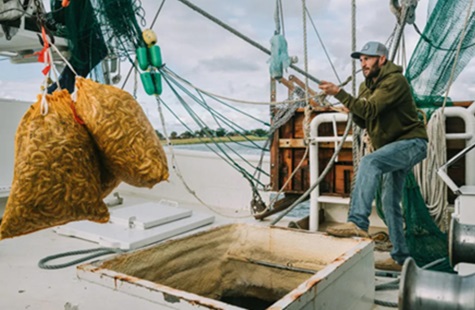
Coastal Georgia shrimpers fear loss of industry as foreign seafood crowds market
“Just when you think it can’t get any worse, it gets worse,” said Pat Mathews, the owner of the Lazaretto Packing Co. on Tybee Island, as he walked away from a truck idling in the loading zone. Early on a Monday morning in October in the height of shrimp season the driver had come to pick up a load of freshly caught shrimp from the James W. Salyers, a shrimp boat captained by David Attia. The driver delivered disappointing news, informing Pat that this would be the last load he would be able to pick up for the foreseeable future. The Mathews family has been in the seafood business for over a century. Where they once owned several seafood markets, their business now centers on the dock they own at Tybee, one of the few hubs of the industry that has been an iconic business on Georgia’s 100-mile coast. >>click to read<< 10:53
Lawmakers form Seafood Caucus to help Louisiana fishermen
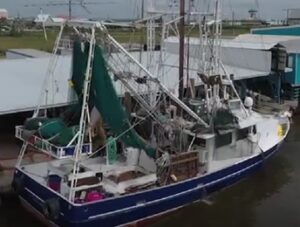 Consumers likely don’t think twice about where the shrimp or seafood bought at grocery store comes from, but Louisiana fisherman—and now federal lawmakers—are asking people to pay attention. “We’re losing an industry and a culture and a way of life in Louisiana and across the country,” said Acy Cooper, who comes from a long line of shrimpers. He says what was once a reliable profession has now become heartache. It’s not just a problem in Louisiana—which is why lawmakers from all four of the country’s coasts are joining together to find a solution. Video, >>click to read<< 10:28
Consumers likely don’t think twice about where the shrimp or seafood bought at grocery store comes from, but Louisiana fisherman—and now federal lawmakers—are asking people to pay attention. “We’re losing an industry and a culture and a way of life in Louisiana and across the country,” said Acy Cooper, who comes from a long line of shrimpers. He says what was once a reliable profession has now become heartache. It’s not just a problem in Louisiana—which is why lawmakers from all four of the country’s coasts are joining together to find a solution. Video, >>click to read<< 10:28
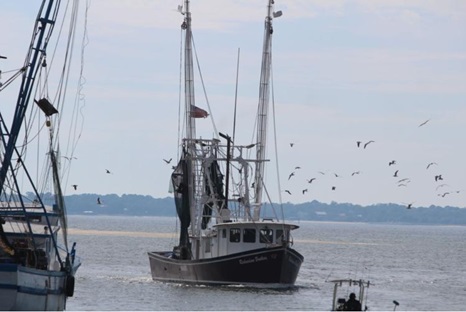
The Fleet fights back: Fishermen unite to curb shrimp dumping
Mount Pleasant’s Economic Development Committee met on Nov. 6 and voted in favor of the proposed economic disaster declaration from the South Carolina Shrimper’s Association and Southern Shrimp Alliance that asserts the Mount Pleasant shrimping fleet can’t sustain itself due to the harmful impacts of shrimp dumping, or the flooding of the market with imported, non-domestic shrimp. Mount Pleasant is the second municipality in South Carolina to declare a state of economic disaster for the domestic shrimping industry. Bryan Jones, vice president of the South Carolina Shrimper’s Association, said the declaration is more than symbolic — it’s one crucial part of a fight that is bringing fishermen from across the Southern United States together to defend their businesses, livelihoods and the shrimping industry as a whole. >>click to read<< 12:40
Will small boats soon have to slow down off NC to protect North Atlantic Right Whales?
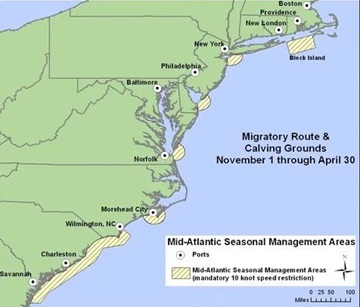 Vessel speed limits to help avoid fatal collisions between ships and one of the most endangered animals in the world that has fallen to around 350 individuals have gone back into effect off the U.S. Southeastern coast, including parts of North Carolina. The seasonal-management areas, or SMAs, limit the speed of most vessels 65 feet or longer to 10 knots, about 11.5 mph, in areas known to have heavy ship traffic that are also migratory routes or known calving grounds for the North Atlantic right whale. The go-slow zones, which run from November through April and have been in effect for more than a decade, extend about 20 nautical miles, or 23 miles, offshore and include areas around Morehead City and Beaufort and within 23 miles from shore between Wilmington and Brunswick, Ga. >>click to read<< 15:46
Vessel speed limits to help avoid fatal collisions between ships and one of the most endangered animals in the world that has fallen to around 350 individuals have gone back into effect off the U.S. Southeastern coast, including parts of North Carolina. The seasonal-management areas, or SMAs, limit the speed of most vessels 65 feet or longer to 10 knots, about 11.5 mph, in areas known to have heavy ship traffic that are also migratory routes or known calving grounds for the North Atlantic right whale. The go-slow zones, which run from November through April and have been in effect for more than a decade, extend about 20 nautical miles, or 23 miles, offshore and include areas around Morehead City and Beaufort and within 23 miles from shore between Wilmington and Brunswick, Ga. >>click to read<< 15:46
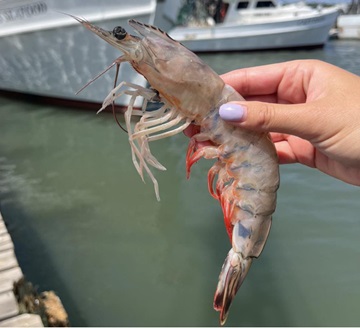
‘Catastrophic crisis’: Imported shrimp flood US market
Foreign shrimp imports are overwhelming the country’s inventories of shrimp and driving market prices for locally sourced shrimp to record lows, prompting widespread calls from elected officials and organizations throughout southern Atlantic and Gulf Coast states for the federal government to declare a fishery resource disaster. Governors of coastal states from North Carolina to Florida to Texas are being pressed to ask U.S. Commerce Secretary Gina Raimondo to determine a fishery resource disaster for the South Atlantic and Gulf of Mexico shrimp fishery. In what one North Carolina coastal county’s board of commissioners refer to as an “unprecedented catastrophic crisis,” shrimpers are struggling to maintain operations because they’re making substantially less for their catch while paying historically high fuel prices and other inflation-driven costs. Shrimpers are also being forced to dock their freezer boats, or vessels with onboard freezers, because they can’t move their product in a market flooded with frozen shrimp from overseas. >>click to read<< 09:40
New regulations aim to protect Florida’s stone crab population
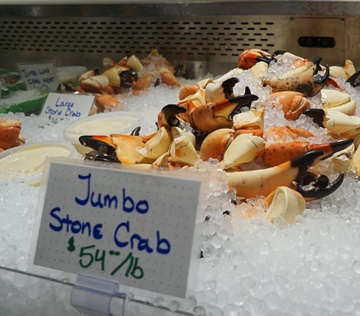 For Floridians, October has one more holiday than what might be on most calendars: the start of stone crab season. Starting Oct. 15, recreational and commercial fishermen are able to harvest the species that holds a spot as one of the five most important fisheries in Florida, according to the Florida Fish and Wildlife Conservation Commission. Although stone crabs are found from North Carolina to Belize, 99% of the stone crab harvest for the entire United States come from Florida. And this year, the FWC began implementing new regulations in an effort to conserve the longevity of this important fishery. >>click to read<< 08:29
For Floridians, October has one more holiday than what might be on most calendars: the start of stone crab season. Starting Oct. 15, recreational and commercial fishermen are able to harvest the species that holds a spot as one of the five most important fisheries in Florida, according to the Florida Fish and Wildlife Conservation Commission. Although stone crabs are found from North Carolina to Belize, 99% of the stone crab harvest for the entire United States come from Florida. And this year, the FWC began implementing new regulations in an effort to conserve the longevity of this important fishery. >>click to read<< 08:29
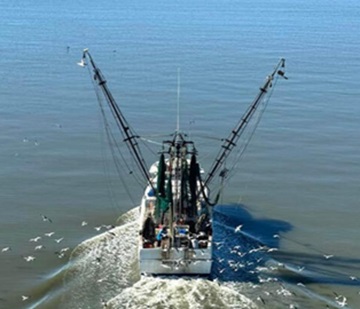
Wild-Caught Shrimp: South Carolina’s Long History
There’s something positively serene about watching shrimp boats trawling our coastal waters. Shrimping has been an important part of our culture in Beaufort and all of South Carolina since long before anyone can remember. In fact it’s been a labor of love for fishermen since before the Civil War and is still alive and kicking today with a thriving market served by dedicated commercial fishermen in the Palmetto State. Shrimp are America’s most valuable and most popular seafood, according to the NOAA Fisheries, and SCDNR tells us that South Carolina is home to three species of shrimp: brown shrimp, white shrimp, and pink shrimp. Brown and white shrimp are more common than pink shrimp, but all three taste the same. >>click to read<< 20:47
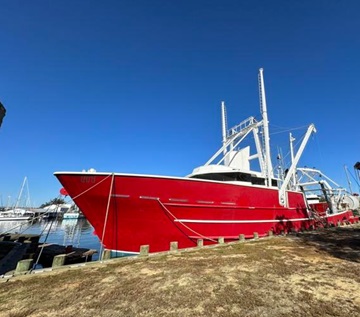
County lawmakers request fishery resource disaster determination amidst nationwide shrimp disaster
On Sept. 18 the Pamlico County Commissioners adopted a resolution urging North Carolina Governor Roy Cooper to consider submitting a request for a fishery resource disaster determination to the NC Secretary of Commerce. Craven County followed suit and adopted a similar resolution on October 2. According to these resolutions, the global supply of farm-raised shrimp imports into the United States has reached record highs. This imported shrimp now dominates cold storages, distribution hubs, and the American market at a level that is devastating to US operators. This influx of imported shrimp into the American market has caused significant revenue loss, and loss of access to the shrimp fisheries themselves, for small family-owned supporting businesses, and other supporting businesses. >>click to read<< 09:47
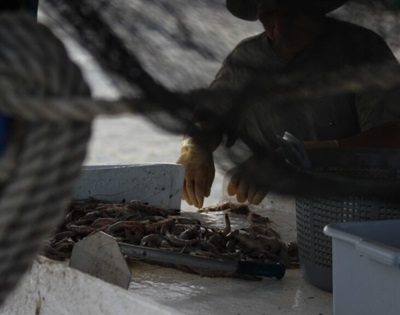
That ‘Gulf’ shrimp you ate probably wasn’t from the Gulf of Mexico
What if every imported seafood product for sale in Louisiana had a red sticker with the word “Imported” affixed to the front of its packaging? That question is one of several the state Seafood Safety Task Force is asking in an effort to address a struggling domestic fishery and increasing health risks from imported catch. The task force met Friday for just the second time in over a decade following a long dormant period that ended last month. State Sen. Fred Mills, R-St. Martinville, chairs the task force that he said will try to develop solutions to address three areas: the health and safety of consumers, the economy of the domestic seafood sector, and consumer education. An influx of cheap foreign catch has flooded the seafood market in Louisiana, and most restaurants in the state choose to serve imported shrimp and crawfish to patrons who are either oblivious to it or mistakenly believe they’re eating local fare, according to the Louisiana Shrimp Association. The effects have decimated a local industry and unique Louisiana culture while also potentially introducing harmful contaminants into the food supply. >>click to read<< 11:52
Survivor From Lost Fishing Boat Saved After Coast Guard Ended Search
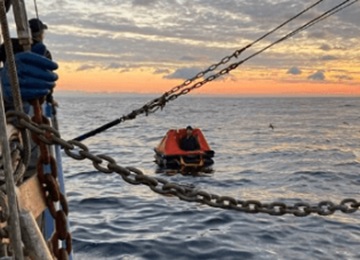 This week, the U.S. Coast Guard ended searches for two commercial fishing vessels that each disappeared without a trace, one in Washington and another in Georgia. The Washington case ended in a miracle: a crewmember was found alive after formal search efforts had ended. On Tuesday, Coast Guard Station Grays Harbor announced that it had launched a search for a 43-foot commercial fishing vessel, the Evening, which was nine days overdue. Miraculously, one crewmember of the Evening survived and was found by a good Samaritan vessel on Thursday morning – a day after the formal search ended. He was floating in a life raft off the west coast of Vancouver Island, near Tofino. The whereabouts of the other crewmember are not known. On Thursday, the U.S. Coast Guard suspended a search for a commercial fishing vessel F/V Carol Ann that had gone missing with three crewmembers off the coast of Brunswick, Georgia. >>click to read<< 07:15
This week, the U.S. Coast Guard ended searches for two commercial fishing vessels that each disappeared without a trace, one in Washington and another in Georgia. The Washington case ended in a miracle: a crewmember was found alive after formal search efforts had ended. On Tuesday, Coast Guard Station Grays Harbor announced that it had launched a search for a 43-foot commercial fishing vessel, the Evening, which was nine days overdue. Miraculously, one crewmember of the Evening survived and was found by a good Samaritan vessel on Thursday morning – a day after the formal search ended. He was floating in a life raft off the west coast of Vancouver Island, near Tofino. The whereabouts of the other crewmember are not known. On Thursday, the U.S. Coast Guard suspended a search for a commercial fishing vessel F/V Carol Ann that had gone missing with three crewmembers off the coast of Brunswick, Georgia. >>click to read<< 07:15






